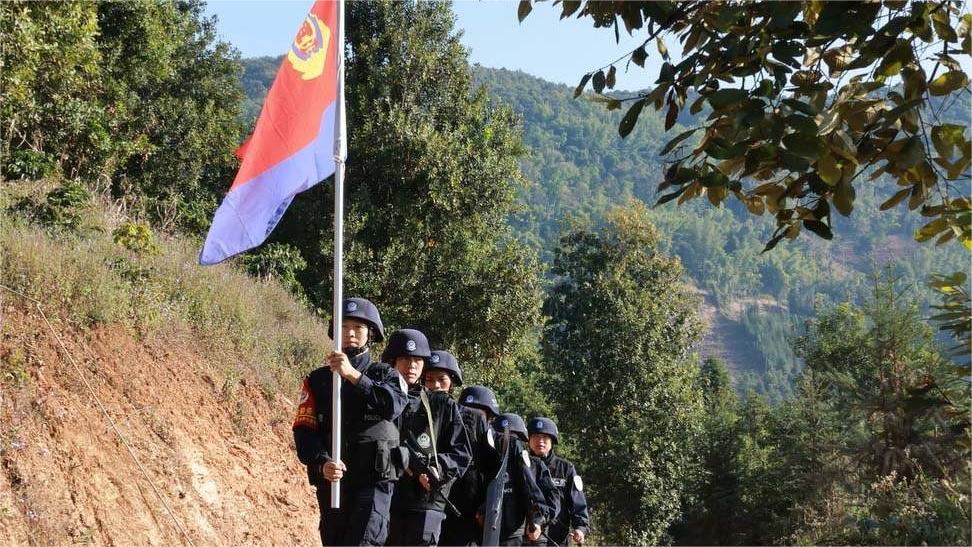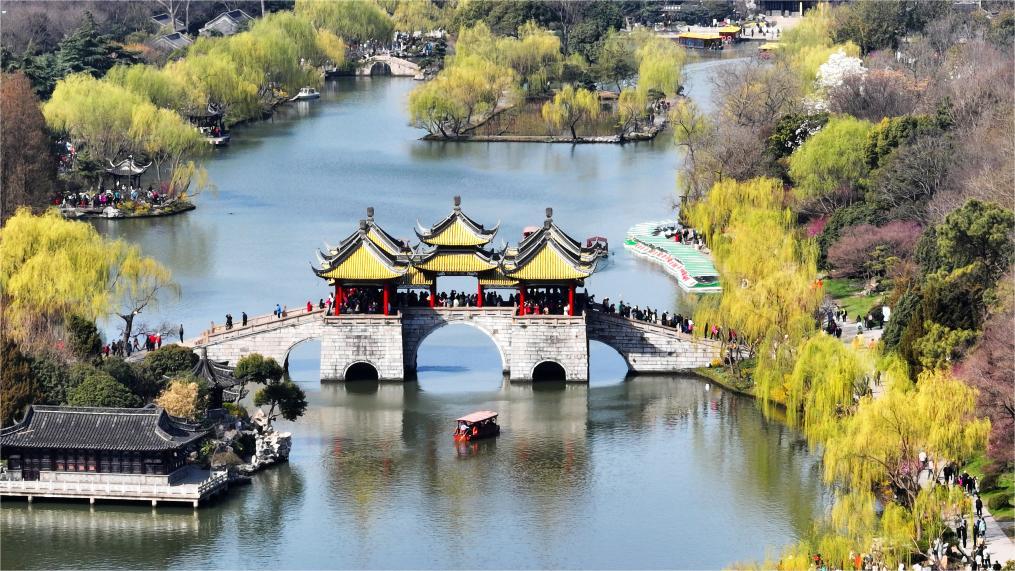Build consensus for ceasefire, pave roads for peace talks
The conflict between Russia and Ukraine has dragged on for over two years, with prospects for peace remain uncertain. The prolonged hostilities not only exacerbate the suffering of the people in both countries but also pose unpredictable risks and challenges to the region and the world at large.
Therefore, there is a growing international call for peace and dialogue. Many countries have proposed initiatives and plans aimed at restoring trust, resolving the crisis, and rebuilding peace. China highly appreciates these efforts and hopes that a consensus can be forged among all parties to explore a solution to the conflict.
As a permanent member of the United Nations Security Council and a responsible major country, China takes an objective and just position on the Ukraine issue, and works actively to promote peace talks.
Since the full escalation of the Ukraine crisis, Chinese President Xi Jinping has had in-depth communication with leaders of countries including Russia and Ukraine, and has put forward four principles, called for joint efforts in four areas and shared three observations on Ukraine, which outline China's fundamental approach to the crisis.
One year after the full escalation of the Ukraine crisis, China formulated and released China's Position on the Political Settlement of the Ukraine Crisis, which covers 12 aspects including respecting the sovereignty of all countries, abandoning the Cold War mentality, ceasing hostilities, resuming peace talks and more.
As the Special Representative of the Chinese Government on Eurasian Affairs, I have been engaged in a series of diplomatic activities regarding the Ukraine crisis over the past year. Last May, I went to Europe for the first round of shuttle diplomacy. In August, I attended a meeting in Jeddah on the Ukraine crisis, and I also met intensively with representatives from various parties in Beijing to exchange views.
China's efforts to restore peace and achieve a political resolution to the Ukraine crisis have been widely recognized and highly appreciated by the international community.
After a year of communication with various parties, my greatest impression is that, despite the ongoing uncertainties and prominent conflicts, war is not good for the vast majority of countries, and achieving peace is the common aspiration.
In this regard, I recently embarked on a second round of shuttle diplomacy to Russia, Ukraine, and other European countries involved, with the aim of exchanging views and building consensus with all parties on promoting a political resolution to the Ukraine crisis.
During this visit, three impressions stood out to me.
Firstly, it is crucial to build consensus for a ceasefire and an end to the fighting. Conflicts and wars produce no winner. History has shown that all wars can only be resolved through negotiations ultimately. Every bit of consensus accumulated brings us closer to the dawn of peace, while every day of conflict adds to the risks in the world.
China has consistently supported and expected both Russia and Ukraine will act in the fundamental and long-term interests of their peoples, meet each other halfway, and resume direct dialogue as soon as possible, so as to achieve a ceasefire at an early date.
China is willing to create all necessary conditions for negotiations between Russia and Ukraine. China supports an international peace conference that is to be held in due course, recognized by both Russia and Ukraine, and is attended by all parties on an equal footing for fair discussions on all peace plans.
Secondly, the spillover risks of the crisis must be controlled. The Ukraine crisis, as the largest geopolitical conflict in Europe since World War II, has severely impacted relations between major countries and the global governance system.
The crisis has exacerbated instability in the global industrial chain, leading to serious concerns regarding energy security, food security, nuclear security, cross-border infrastructure security, humanitarian crises, and other issues. These have significant impacts on global peace and development.
The prolonged and complex nature of the Ukraine crisis may give rise to various security risks that are not in the interest of all parties. A ceasefire and an end to the conflict as soon as possible is the right way to solve the problem.
Thirdly, the mistake of the Cold War must be avoided repeating. The Ukraine crisis has complex historical and realistic factors. The Cold War has been over for more than 30 years, but the Cold War mentality is still firmly rooted in some countries, strengthening military alliances, and provoking bloc confrontation, which ultimately led to the crisis.
China believes that the security of a country should not be pursued at the expense of others, the security of a region should not be achieved by strengthening or expanding military blocs, and the legitimate security interests and concerns of all countries must be taken seriously and addressed properly.
Only by abandoning the Cold War mentality, promoting dialogue and negotiation among all parties on an equal footing, and building a balanced, effective, and sustainable European security architecture, can long-term stability be achieved in Europe.
At the same time, we firmly oppose any attempt by individual countries to use conflicts to seek selfish gains, force others to take sides, threaten to decouple and sever supply chains, build "small yard and high fence," and attempt to repeat the mistake of bloc confrontation.
There is no panacea for defusing the crisis. However, I firmly believe that a political solution is the best and only way to address the Ukraine crisis, which is the most important conclusion of my shuttle diplomacy this time.
Both Russia and Ukraine are important strategic partners of China with long-standing friendly and cooperative relations. China does not have selfish interests or seek to put up exclusive blocs. It has not added fuel to the fire or taken advantage of the situation.
The international community should adhere to the vision of a common, comprehensive, cooperative and sustainable security, take each other's legitimate security concerns seriously, and promote the building of a balanced, effective, and sustainable security architecture for the region and the world, in order to jointly safeguard world peace.
Peace, like air and sunshine, is hardly noticed when we are benefiting from it. But none of us can live without it. Making the world peaceful, stable and safe is the strong desire of all people, the common responsibility of all countries, and more importantly, the right direction for the advancement of our times.
As a Chinese proverb puts it, it takes more than one cold day to freeze three feet of ice. There is no simple solution to the Ukraine crisis. Long as the journey is, we will reach our destination if we stay the course; difficult as the task is, we will get the job done if we keep working at it.
China is ready to work with all peace-loving and progressive forces in the world to play a constructive role in resolving the crisis and achieving peace. We will always stand on the side of peace and dialogue, that is, the right side of history.
(Li Hui is the Special Representative of the Chinese Government on Eurasian Affairs.)
Photos
Related Stories
- China calls for peace talks over Ukraine crisis
- Top Democrat in U.S. House urges passage of Ukraine aid bill by end of next week
- Beijing's efforts seen as key to resolving crisis
- White House announces 300 bln USD in weapons aid to Ukraine
- China supports holding international peace conference recognized by both Russia and Ukraine: Wang Yi
Copyright © 2024 People's Daily Online. All Rights Reserved.









